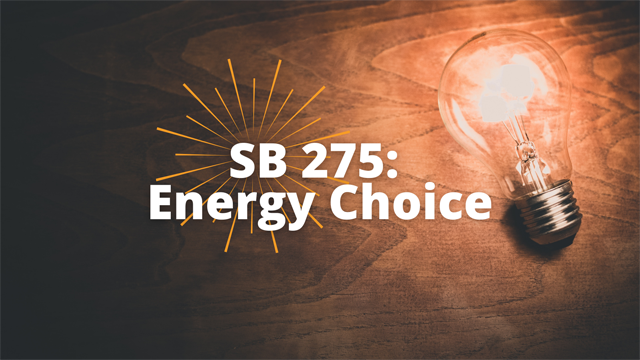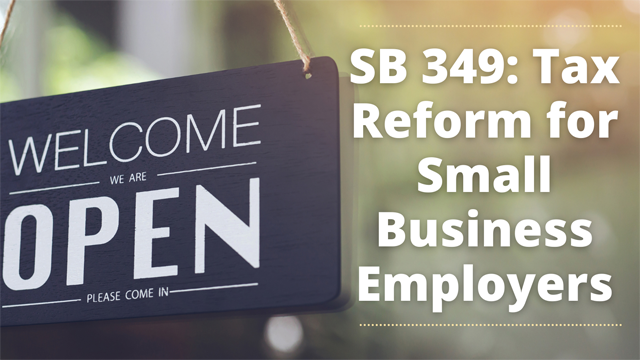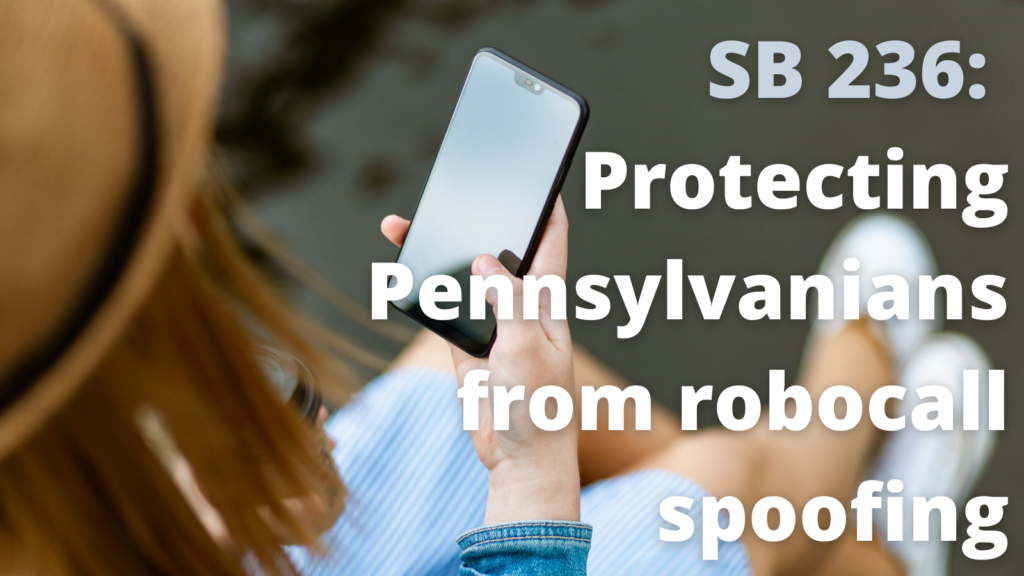
|
||||
|
In this Update:
Hearing from Female Veterans About Their Military Experiences
The Senate Veterans Affairs and Emergency Preparedness Committee hosted a roundtable discussion with female veterans about their military experiences. The discussion focused on the opportunities and challenges for females in a historically male-dominated field. They spoke of how common it was to be the only woman in a classroom filled with men and the exhaustion that comes from needing to work harder than their male peers without feeling like the work pays off. The women also spoke of how military sexual trauma impacted, and frequently cut short, their service. Often, services available to help people cope with sexual assault aren’t known to the victims, so the roundtable participants emphasized how important it is to make that critical information available to military members at all levels of service. Despite challenges they faced, the women emphatically felt that their service was valuable to their own personal development and cited the character development and work ethic as benefits they received. Reuniting Veterans with Military Decorations
The Pennsylvania Treasury’s vault holds tangible unclaimed property, including hundreds of military decorations that Treasury is working to return to each and every veteran or their family. There are military ID tags, pins, campaign ribbons and medals, Bronze Stars and Purple Hearts. Most tangible property received by Treasury is auctioned off after about three years, but not military decorations. These symbols of sacrifice are kept in perpetuity and never sold. Treasury has a database dedicated to military decorations so families can easily search to see if anything is waiting to be returned to them or a loved one. Click here to search the database of unclaimed military decorations. Wall of Honor
In recognition of those who have sacrificed to protect our nation and defend the freedoms we enjoy as Americans, I am asking veterans to submit their names to my virtual wall of honor for Veterans Day 2021. Veterans and their family members may submit their information online at SenatorGebhard48.com/virtual-wall-of-honor. It is with deep gratitude and appreciation that I would like to thank the military veterans in my district for their service! Ensuring Pennsylvania Homes, Employers Have Access to Diverse Energy Options
The state Senate voted to ensure Pennsylvania homes and employers have access to diverse energy options. Senate Bill 275, known as “Energy Choice” legislation, would limit municipal entities from banning a specific type of fuel source for appliances and heating homes or businesses. The language is fuel-neutral and is not specific to one energy source. Pennsylvania’s history of energy choice has resulted in reductions in energy costs as well as emissions. While other states are seeking to ban fuel sources, such as natural gas, Pennsylvania residents have a myriad of energy options from which to choose, helping to keep energy bills lower. By allowing businesses to retain the option to choose energy sources, the bill helps employers stay competitive in an increasingly challenging global market. The bill now moves to the state House of Representatives for consideration. Approving Tax Reform Measure for Small Business Employers
To help Pennsylvania move out of a pandemic economy and create jobs, the Senate passed a bill to bring state tax law governing expense deductions in line with federal law. It would eliminate the unequal treatment of small businesses in Pennsylvania. Senate Bill 349 is part of a Small Business Tax Reform Package to help employers recover from the COVID-19 pandemic and mandated shutdowns. The federal Tax Cuts and Jobs Act of 2017 raised the federal limit for IRS Section 179 expense deductions from $500,000 to $1 million annually. However, Pennsylvania law limits the deduction to $25,000 for personal income tax purposes, which covers S Corporations, partnerships and individuals. The increase in limits makes it easier for employers to buy equipment and to invest, which promotes job growth in Pennsylvania. Small businesses create 65% of the jobs in Pennsylvania. Passage of Senate Bill 349 is part of a broader recovery effort to rebuild Pennsylvania’s economy. The bill will be sent to the House of Representatives for consideration. Green Light-Go Program Now Accepting Applications
Through the Pennsylvania Department of Transportation’s Green Light-Go Program, approximately $40 million is expected to be available to municipalities and metropolitan or rural planning organizations for upgrading traffic signals to light-emitting diode (LED) technology and intelligent transportation applications. It may also be used for autonomous and connected vehicle-related technology, performing regional operations such as retiming, developing special event plans, monitoring traffic signals and for maintaining and operating traffic signals. Grant applications will be accepted through Jan. 14, 2022. Prior to application submission, applicants must complete and submit a Pre-Application Project Scoping Form to the appropriate Department Engineering District in accordance with the Green Light-Go Program Guidelines. Applicants must also update information in the Department’s Traffic Signal Asset Management System as indicated in the Green Light-Go Program guidelines available here. Grant recipients must provide a 20% match of the grant awarded. Overcoming Barriers to Quality Health Care
The Senate approved legislation to promote telemedicine to overcome barriers to quality patient care created by distance and reduce the costs of those services. Telemedicine is a rapidly growing component of health care, and many health care professionals and hospitals in Pennsylvania are already providing services via telemedicine. However, currently none of the health care professionals’ licensure acts explicitly authorize or regulate practice via telemedicine. Senate Bill 705 defines “telemedicine” as “the delivery of health care services provided through telecommunications technology to a patient by a health care practitioner who is at a different location,” and allows anyone with a medical license or otherwise regulated by Pennsylvania law to provide telemedicine services. Through the use of telemedicine, specialists and other health care providers are able to expand their reach, helping COVID-19 patients, high-risk patients, stay-in-home patients, and rural patients who would have the ability to stay in their communities, avoiding long-distance travel for specialized care. The legislation now heads to the state House of Representatives for consideration. Senate Approves Bill to Boost Gifts to Charities
The Senate approved legislation that will make it easier for charities and nonprofit organizations to receive large financial gifts via Charitable Gift Annuities to fulfill their missions. The bill will be sent to the state House of Representatives for consideration. Charitable Gift Annuities provide donors the opportunity to support a charitable organization, while receiving fixed annuity payments. The payments can begin immediately, or the donor can choose to defer the payments to a future date. The terms of the arrangement are set forth in a contract signed by the nonprofit and the donor. The arrangement terminates on the death of the annuitant, at which point the nonprofit uses the remaining funds on its mission. Under current law, it is very difficult for smaller charitable organizations to utilize Charitable Gift Annuities, because the amount of unrestricted cash or publicly traded securities needed to cover the minimum is impractical and unworkable. A smaller foundation or charity must commit a significant amount of foundation resources to the annuity and not to its mission. Senate Bill 731 would allow charities to transfer their risk to a commercial insurance company, which will match substantially all future payments of the charity arising from a charitable gift annuity contract obligation. The change will allow a small nonprofit organization to receive a large charitable gift annuity that it previously may have been prevented from receiving. Heating Assistance Program Open Now
Residents who struggle with their home heating bills can now apply for assistance from the Low-Income Home Energy Assistance Program (LIHEAP). LIHEAP is a federally-funded program that helps individuals and families pay their heating bills through home heating energy assistance grants. It also provides crisis grants to help in the event of an emergency or if a resident is in danger of losing his or her heat due to broken equipment, lack of fuel or termination of utility service. The income limit for LIHEAP for an individual is $19,320; for a couple, the limit is $26,130; and for a family of four, it is $39,750. Residents may apply for LIHEAP online or by contacting the county assistance office in their county of residence. Click here for additional information. Working to Ban Deceptive “Spoofing” Phone Calls
In an effort to crack down on deceptive and nuisance telephone calls, the Senate approved a bill banning the practice of caller ID “spoofing.” Senate Bill 236 now heads to the state House of Representatives for its consideration. Senate Bill 236 is designed to protect citizens from misleading telemarketing “robocalls,” particularly those that disguise their real phone number by making it look like a local number, increasing the likelihood that the call will be answered. The computerized telemarketing messages can be intrusive and can also prey on trusting Pennsylvanians, including vulnerable senior citizens because the calls come across the caller ID as being a local number and are intended to confuse and defraud the recipients. The legislation also prevents telemarketing calls before 8 a.m. and after 8 p.m.
Please do not reply to this email, as that mailbox is unattended. To better serve the constituents of the 48th District, I have set up a contact form on my website. Please click here if you would like to send me a message. To subscribe to Senator Gebhard’s newsletter click here. Follow him on Facebook, Twitter, or visit https://senatorgebhard48.com/ |
||||
|
||||



2024 © Senate of Pennsylvania | https://senatorgebhard.com | Privacy Policy |










